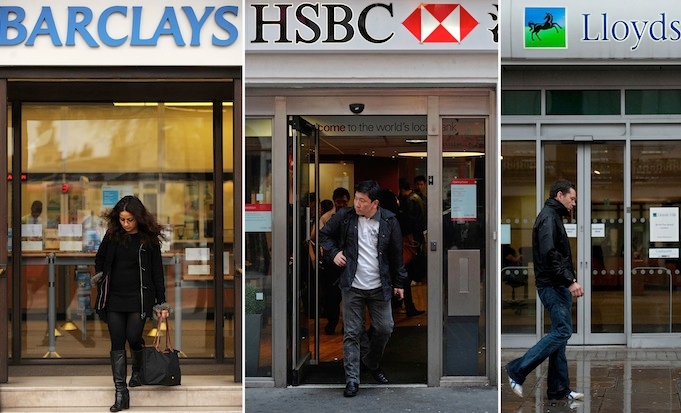It’s been two years in the making but the Competition and Markets Authority (CMA) has finally published its investigation into the retail banking sector.
The watchdog announced this morning that Britain’s High Street banks must launch a technological ‘revolution’ in an effort to promote better competition.
The CMA concluded that new phone-based apps should be brought in by early 2018. This will enable customers to share their data with banks and websites. The CMA also ordered further measures to encourage people to switch accounts. And banks will have to cap their monthly charges for unarranged overdrafts.
‘The reforms we have announced today will shake up retail banking for years to come, and ensure that both personal customers and small businesses get a better deal from their banks,’ said Alasdair Smith, chair of the CMA’s retail banking investigation. ‘Our reforms will increase innovation and competition in a sector whose performance is crucial for the UK economy.’
But the report drew a luke-warm response. Craig Donaldson, chief executive officer, Metro Bank, said: ‘After more than two years in the writing and costing several millions of pounds, we are astonished that the CMA’s findings do not attempt to level the playing field for new entrants and challenger banks, by recommending that the PRA looks into disproportionate capital requirements. Disproportionate capital requirements are anti-competitive and unduly support the large incumbent banks by allowing them to hold up to 10 times less capital for the same loans than challenger banks.
‘The CMA was given a rare opportunity to support and develop competition in banking, it is disappointing that they decided not to get at the root of the problem, but rather they missed the point and tinkered around the edges.’
Nick Kennett, director of financial services, Post Office, said: ‘The CMA’s final recommendations on the current account market promise an ‘open banking revolution’ but the measures they suggest to reform the industry do not go far enough to address the systemic issues with UK banking, and while today’s announcement does attempt to promote transparency, a greater degree of choice and clearer guidance for consumers, the measures do not address the core issue that stands in the way of true competition for the current account market.
‘Our current system of free-in-credit banking reinforces the dominance of the UK’s major banks and doesn’t allow for customer-focused challengers to offer true innovation. This system produces products that leave many paying unclear, excessive fees which is particularly concerning for vulnerable consumers who have difficulty managing their money – while the introduction of a ‘maximum monthly charge’ on overdrafts seems like a promising way to address this, it is set by each individual provider rather than as an industry-wide standard. It forces consumers to find the best rate rather than simply offering them a fair deal.’
Competition between banks is most likely to come from the likes of Apple and Google, says Diane Coyle, a professor at Manchester University and formerly of the Competition Commission.
Housing
One in three families in England could be just one pay cheque away from losing their home, according to a new survey.
The housing charity Shelter, which conducted the research with YouGov, says three million working families could not pay their rent or mortgage for more than a month if they lost their job. It says a lack of personal savings and high housing costs mean that many families are ‘stretched to breaking point’.
The online survey of 8,381 adults, which included 1,581 people working families with children, was carried out in July.
The survey said that 37 per cent of families surveyed would be unable to cover their housing costs for more than one month with no job, while 23 per cent said they would be not be able to pay their housing costs at all.
Spending
British shoppers have shrugged off fears that Brexit would hamper consumer spending after fresh figures showed retailers enjoyed the strongest sales growth since January, according to The Telegraph.
The upbeat research comes despite fears by the highly-respected KPMG – Ipsos Retail Think Tank that the political uncertainty would lead to a dampening of consumer confidence which would hurt the retail sector’s fortunes.
However, fresh figures from the British Retail Consortium reveal that while there was an immediate drop-off in spending following June 23 as people tracked the political drama, sales recovered strongly in the days that followed.
Finally…
British dogs are increasingly well travelled, with one-in-10 owners taking their pet abroad, according to new research from Direct Line Pet Insurance. Over a third of British vets have reported an increase in demand for pet passports over the last 12 months.
For many owners (45 per cent), their dog always influences their choice of holiday destination, with just seven per cent of owners saying their pet never influences where they go away. Pet owners also appear to be enjoying ‘staycations’ with their pets, as 65 per cent claim to have taken their animal on a UK-based ‘petcation’.






Comments